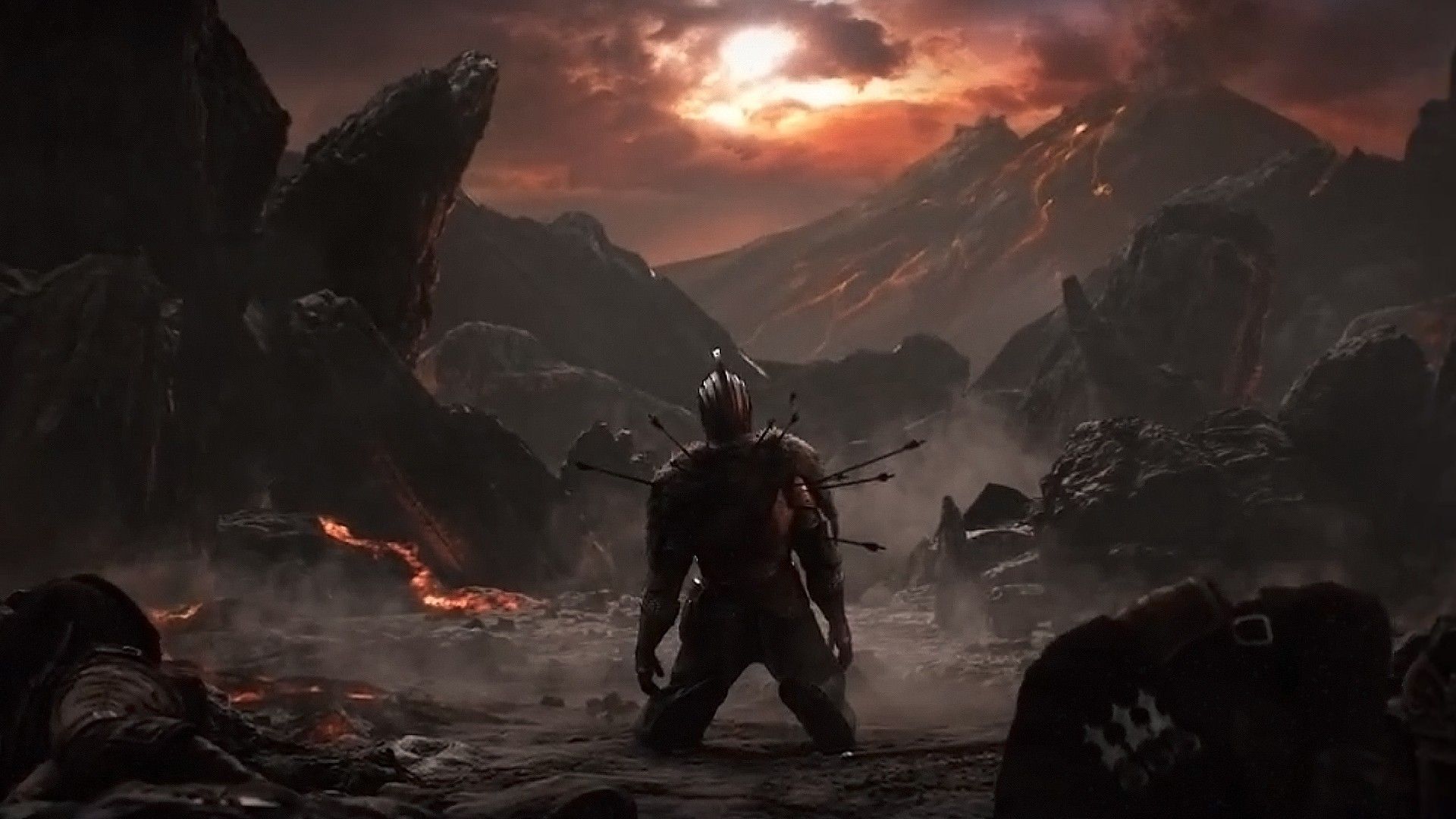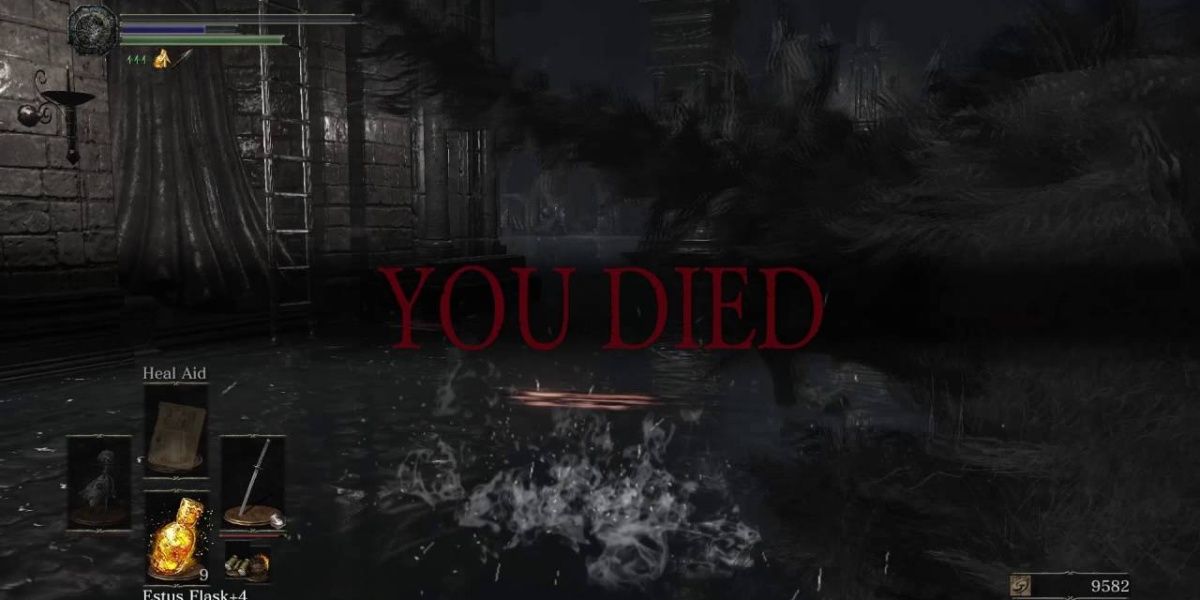The Philosophy of Dark Souls Explained
The first Dark Souls game is often included in lists of the greatest games of all time, let alone of RPGs from the past decade. There is much to love about this title and the series of games that followed it. Everything from the intricately designed levels to the esoteric story has made players consistently come back for more. The terms Existentialism and Nihilism get thrown around quite often when describing Dark Souls, when in reality, these concepts are very opposed to one another. However, the true beauty of Dark Souls is that both descriptions can still be accurate.
Existentialism is feeling, and few games have made players have such strong feelings more than Dark Souls. Players have incredibly strong opinions about the difficulty of the game's bosses and areas. These opinions can drastically differ depending on what kind of character the player chose. In the ten years since Dark Souls, players have struggled to find the meaning of the game's unique story presentation. Both Existentialism and Nihilism are concerned with this meaning, but where the latter rejects all meaning, the former only rejects certain conceptualist sources of meaning because they are illusions. It's easy to subscribe to either belief system once the credits for Dark Souls roll, and neither are correct or incorrect.
RELATED: Every Major Change From Dark Souls to Elden Ring
Dark Souls Nihilism

The main narrative choice that players will have to make in Dark Souls is which ending they want. They can choose to link the final flame and usher in an age of fire as Gwyn did before. However, just as before, the flames will again fade with time and another Chosen Undead will be in the same position. Alternatively, the player can choose to not link the fire and become The Dark Lord. Again, as seen at the beginning of the game, a spark will eventually lead to a flame and end the age of darkness.
It seems like the player’s choice doesn’t really matter in the end, as the cycle continues. Indeed, the only meaning or value accrued here comes from the cutscene that plays immediately after the choice is made. The long-term effects are very similar, if not identical to one another. Therefore, it’s easy to argue that the player’s role in Lordran is without meaning and just part of a grand cycle. The actions of the player are meaningless, but they persist through difficult endeavors regardless. In the following Dark Souls games, it's implied that someone did eventually link the flame, but whether that was the player's character from Dark Souls 1 or not, it doesn't matter because it was essentially inevitable.
Nihilism also often passes a moral judgment upon said actions. This is best seen with the PvP aspect of Dark Souls in which people can invade other players’ worlds and attempt to kill them. The Nihilist would say that there’s nothing inherently wrong with this action. Regardless of invasion, that player was going to die in-game at some point anyway, so the invasion doesn't really matter in the big picture. Furthermore, how could an integral part of the game be morally wrong, anyway? If the developers thought it was bad or unfun, it wouldn't be in Dark Souls. It’s difficult to argue against this, though there is still another stance to consider.
RELATED: How Long It Takes to Beat Every Dark Souls Game
Dark Souls Existentialism

Nihilism is, simply put, an easy answer to some of the most difficult questions in Dark Souls. Some may be satisfied by that, while others believe there’s something deeper going on with the game. The alternative is Existentialism. German Philosopher Friedrich Nietzche argued that such purely conceptual ways of analyzing things are incorrect. This is so because just considering the conceptual side of things is an over-application of it, and therefore denies the most fundamental things. Consider a Biologist doing Biology with only their eye; the eye is not bad, it is just being over-applied and as such denies the existence of microscopic Biology. Similarly, Nihilism as a concept denies some of the most basic things in Dark Souls: how it makes people feel.
Existentialism is meaning, freedom, subjectivity, creation, and individuality. It is the antithesis of Nihilism. Where the Nihilist would see no difference between the two endings of Dark Souls, the Existentialist would argue that there is so much more meaning than initially apparent. Often is the case that people even have to create their own meaning in the world. Furthermore, it is extremely subjective. Some might see linking the flame as a good action because it extends the age of humans and extinguishes the curse, for a time at least. Others can see this as a bad action, because the age of fire was supposed to be ended already and Gwyn tampered with the natural cycle of things.
In terms of Dark Souls PvP, these two schools of thought are actually aligned, but for different reasons. When players use the Red Eye Orb to invade, they do not necessarily have to kill the host. They can fail and receive no rewards. However, they can also be helpful to the host. It isn’t uncommon for red phantoms to invade and drop high-level weapons and armor to new players, for example. The counterpart to the Red Eye Orb, the White Sign Soapstone, traditionally allows for players to join and help players defeat a tough boss or area. However, these players are not always helpful and sometimes can be intentionally antagonistic to the host. These tools do not have any inherent meaning beyond their design by the developers, but Existentialism posits that the meaning of the Orb and Soapstone is determined by the subjectivity and creative usage of the players.
Dark Souls is a rare game that is widely acclaimed by critics and gamers alike. There is a lot of very interesting stuff going on with the story, gameplay systems, and level design. Since its release in 2011, fans of the game have been debating about the game's meaning and attempting to analyze different aspects of it to form a coherent picture. Others have just accepted that there is no inherent meaning, because the player's choices are irrelevant to the larger narrative. Existentialism is opposed to this view and believes that there is meaning to the player's actions, it just depends on the person's own beliefs. There is no right answer for Dark Souls, though, as it's just whatever the player wants it to be.
Dark Souls Remastered is out now for PC, PS4, Switch, and Xbox One.
MORE: Death's Door is Proof An Easier Dark Souls Would Still Be Great
The Philosophy of Dark Souls Explained
Source: Pinay Diaries PH
Popular Posts

Epic Games Partners with LEGO for Metaverse Project


0 Comments